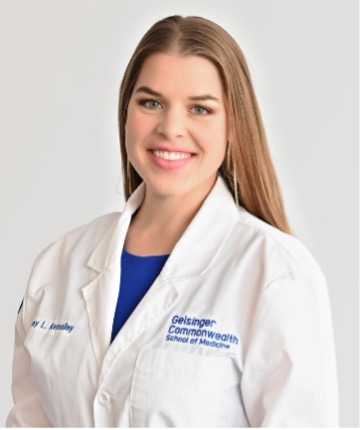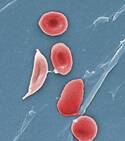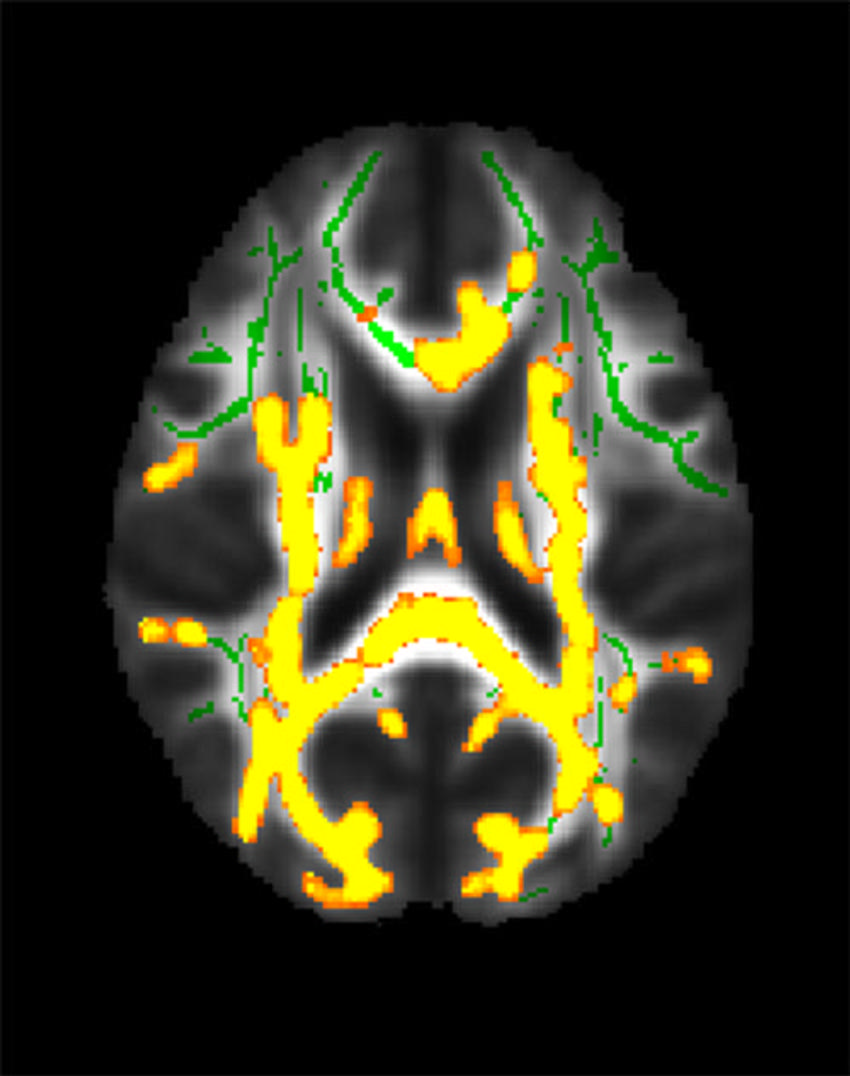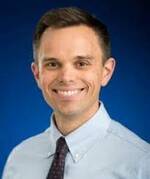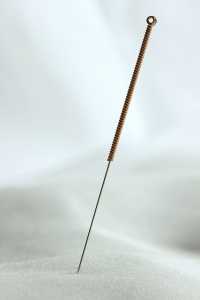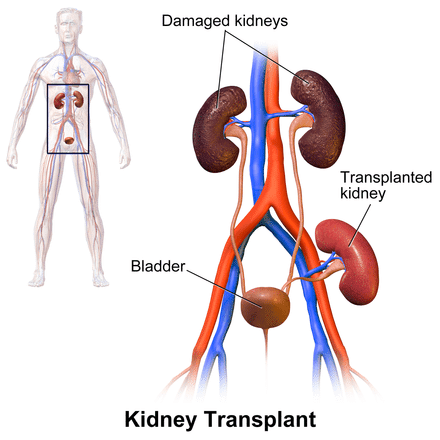It is essential to recognize the diverse manifestations of addiction that have infiltrated our society....
Mental Health Research, Social Issues / 26.12.2023
Exploring Burnout: Let’s Talk About Modern-Day Fatigue
In the fast-paced, interconnected world we now live in, the prevalence of burnout has become a concerning reality for many. The term was first coined in the 1970s to describe the chronic workplace stress that led to physical and emotional exhaustion.
Since then, if you are feeling run down and exhausted you may well be yet another victim of modern-day fatigue.
Here is a look at the nuances of burnout and some key factors contributing to this pervasive problem.
Burnout goes beyond the workplace
While burnout traditionally has its roots in a professional workplace setting, modern-day pressures means that the phenomenon now extends beyond the confines of the workplace.
Burnout now encompasses a holistic exhaustion that permeates various aspects of life. These include personal relationships, social interactions, and even leisure activities.
We have even reached a point where The World Health Organization (WHO) officially recognized burnout as a syndrome in the International Classification of Diseases, emphasizing its impact on overall well-being.
(more…)
Author Interviews / 23.12.2023
How to keep your loved ones comfortable and prevent issues with elder care?
Being a family caretaker is a labor of affection and a big duty, regardless of whether you are looking for your parents, spouse, or any other senior loved one. You must have the information and resources needed to provide the finest treatment possible in order to carry out such a vital responsibility.
An elderly adult's ability to maintain excellent health depends on much more than just prescription drugs and medical care. If you want those closest to you to grow old at ease, independently, and vivaciously, here are the top 5 tips to go along with it.
- Encourage periodic tests and check-ups for seniors
Author Interviews / 20.12.2023
New Geisinger Study Finds That While US Drug Overdoses Increased, the Distribution of Methadone Decreased
MedicalResearch.com Interview with:
Amy Kennalley, MBS
First Year Medical Student
Department of Medical Education
Geisinger Commonwealth School of Medicine
MedicalResearch.com: What is the background for this study?
Response: Opioid use disorder (OUD) is a major public health crisis in the United States. Despite the availability of effective treatments, including the medication-assisted treatment (MAT) with methadone, many individuals with OUD do not receive the care they need. Over the COVID-19 pandemic, there were several policy changes related to take-home doses of methadone, which may have impacted access to this lifesaving medication.
The Drug Enforcement Administration's (DEA)'s Automated Reports and Consolidated Ordering System (ARCOS) is a database that tracks the distribution of controlled substances, including methadone distributed to opioid treatment programs (OTPs). This data can be used to assess trends in methadone distribution over time. Additionally, the Medicaid State Drug Utilization Data (SDUD) database provides comprehensive information on methadone prescribing to Medicaid patients.
By analyzing data from both ARCOS and SDUD, we aimed to provide a comprehensive picture of methadone distribution for OUD treatment in the United States. These findings1 are important because drug overdose deaths, primarily involving opioids, increased substantially (49%) from 2019 (70,980) to 2021 (~106,000).2
(more…)
Author Interviews, Brigham & Women's - Harvard, Dental Research, JAMA, Respiratory / 18.12.2023
Brushing Teeth in Hospitalized Patients May Reduce Risk of Pneumonia
MedicalResearch.com Interview with:
Michael Klompas MD, MPH, FIDSA, FSHEA
Hospital Epidemiologist
Brigham and Women’s Hospital
Professor of Medicine and Population Medicine
Harvard Medical School and
Harvard Pilgrim Health Care Institute
MedicalResearch.com: What is the background for this study? Can teeth be safely brush in patients who are comatose, intubated or have NG tubes?
Response: Pneumonia is thought to occur when secretions from the mouth get into the lungs. Since there are many microbes in the mouth, there’s a risk that secretions from the mouth that get into the lungs will lead to pneumonia. Toothbrushing may lower this risk by decreasing the quantity of microbes in the mouth.
It is indeed safe and appropriate to brush the teeth of someone who is comatose, intubated, or who has an NG tube. Indeed, our study found that the benefits of toothbrushing were clearest for patients receiving mechanical ventilation.
(more…)
Author Interviews, Infections, NYU / 14.12.2023
NEJM: NYU Study Finds Significant Mpox Antibody Titers After Vaccination
MedicalResearch.com Interview with:
Angélica Cifuentes Kottkamp, MD
Assistant Professor of Medicine
NYU Grossman School of Medicine
Associate Program Director
Infectious Diseases & Immunology Fellowship
Associate Director for Research & Diversity
NYU Langone Vaccine Center & VTEU
Attending Physician
H+H Bellevue Virology Clinic
Division of Infectious Diseases & Immunology
NYU Grossman School of Medicine
MedicalResearch.com: What is the background for this study? How does the JYNNEOS vaccine differ from the smallpox vaccine?
Response: JYNNEOS vaccine is a smallpox vaccine that was repurposed for Mpox given the similarities between the two viruses (smallpox and mpox). The vaccine (JYNNEOS) had been studied in people without HIV therefore there was a gap in knowledge in how this vaccine, especially the small dose (intradermal dose), would work in patients with HIV.
These patients resulted to be the most affected by the mpox outbreak suffering the worse outcomes of the disease with the highest death rates.
(more…)
Author Interviews, Moderna, NEJM, Pharmaceutical Companies, Respiratory, Vaccine Studies / 13.12.2023
NEJM: Study finds RSV Vaccine Demonstrated Efficacy Against Lower Respiratory Tract Disease in Older Adults
MedicalResearch.com Interview with:
Eleanor Wilson, M.D
Moderna, 200 Technology Sq.
Cambridge, MA 02139
MedicalResearch.com: What is the background for this study? What are the main findings and side effects (if any)?
Response: The ConquerRSV trial is a randomized, double-blind, placebo-controlled study of approximately 37,000 adults 60 years or older in 22 countries. The primary efficacy endpoints were based on two definitions of RSV-associated lower respiratory tract disease (RSV-LRTD) defined as either two or more symptoms, or three or more symptoms of disease.
Vaccine efficacy was 83.7% (95.88% confidence interval [CI], 66.0 to 92.2) against RSV-associated lower respiratory tract disease with at least two signs or symptoms and 82.4% (96.36% CI, 34.8 to 95.3) against the disease with at least three signs or symptoms. Most adverse reactions were mild to moderate in severity and included injection site pain, fatigue, headache, myalgia, and arthralgia.
(more…)
Author Interviews, Technology / 13.12.2023
AI Has Ability To Speed Up Medical Literature Searches, But Not All Information Reliable
MedicalResearch.com Interview with:
Prof. Enomoto, Masaru
Department of Hepatology
Graduate School of Medicine
Osaka Metropolitan University
Osaka, Japan
MedicalResearch.com: What is the background for this study?
Response: This research was conceived out of the use of generative AI drawing upon past experience in selecting a large amount of literature over an extended amount of time. In recent years, generative AI, such as ChatGPT, has gained attention and is being used in various fields, including information gathering and idea generation.
In the medical field in particular, it is challenging to gather pertinent data as the volume of information proliferates on a daily basis, so there is a need to improve the efficiency of information collection.
(more…)
Author Interviews, Hematology, Pain Research, Pediatrics / 10.12.2023
ASH23: Nemours Study Links Pain Scores with Return ED Rates in Children with Sickle Cell Disease
MedicalResearch.com Interview with:
David Brousseau, MD, MS
Chair of Pediatrics
Nemours Children’s Health, Delaware and the
Sidney Kimmel Medical College at Thomas Jefferson University
MedicalResearch.com: What is the background for this study?
Response: Sickle cell disease (SCD) is an inherited red blood cell disorder – the most common genetic disorder in the United States, affecting about 100,000 Americans (1 of every 365 Black births and 1 of every 16,3000 Hispanic-American births) (source: CDC).
Pain is its most common symptom. Patients may experience acute or chronic pain or both. Acute episodes of pain, or pain crises, can vary in duration and severity. Many are treated at home; however when the pain is excruciating and cannot be treated at home, they lead to Emergency Department (ED) visits and even hospitalization.
Reducing pain through prompt administration of pain medication in the ED is a core principle of national guidelines for SCD care. However, little data exists on how pain scores and changes in pain scores in the ED are associated with the patient’s disposition and the odds of a return visit.
(more…)
Author Interviews, Cannabis, Medical Imaging, Pulmonary Disease / 10.12.2023
Smoking Pot and Cigarettes Increases Risk of Emphysema
MedicalResearch.com Interview with:
Jessie Kang, MD, FRCPC
Assistant professor
Department of Diagnostic Radiology
Faculty of Medicine
Dalhousie University
MedicalResearch.com: What is the background for this study?
- Marijuana is the most widely used illicit psychoactive substance in the world.
- Use has increased in Canada since legalization of non-medical marijuana in 2018.
- It is commonly believed that smoking marijuana is not harmful to the lungs. There is an abundance of established research that identifies the harms of cigarette smoking. In contrast, very little is known about the effects of marijuana smoking, and even less research has been done on the combined effects of smoking marijuana and cigarettes.
Author Interviews, Cost of Health Care, Pharmacology / 09.12.2023
Pharmacy Forecast: Paradigm Shifts in Breakthrough Therapeutics Will Challenge Existing Payment Models
MedicalResearch.com Interview with:
Joseph T. DiPiro, Pharm.D
Associate Vice President, Faculty Affairs
Virginia Commonwealth University
Dr. DiPiro is an editor for Pharmacotherapy: A Pathophysiologic Approach
MedicalResearch.com: What is the background for this study?
Response: The ASHP/ASHP Foundation Pharmacy Forecast Report is constructed from a survey of health-system pharmacy leaders who were asked to rate the likelihood of events, scenarios, and trends occurring in the next five years. The purpose is for health-system pharmacists and pharmacy leaders to inform their strategic planning efforts. The Pharmacy Forecast is not intended to predict future events. Rather, the report is intended to be a provocative stimulant for the thinking, discussion, and planning that must take place in every health system. Leaders must be informed of potential developments to help position their organizations to care for patients, enhance population health, and improve medication outcomes.
(more…)
Author Interviews, Cancer Research, Case Western, Colon Cancer, JAMA / 07.12.2023
Case Western Study Finds GLP-1 Drugs Reduced Incidence of Colorectal Cancer
MedicalResearch.com Interview with:
Nathan A. Berger, M.D.
Distinguished University Professor
Hanna-Payne Professor of Experimental Medicine
Professor of Medicine, Biochemistry, Oncology and Genetics
Director, Center for Science, Health and Society
Case Western Reserve University School of Medicine Rong Xu, PhD Professor, Biomedical Informatics Director, Center for Artificial Intelligence in Drug Discovery Case Western Reserve University School of Medicine MedicalResearch.com: What is the background for this study? Response: 75% of the US Population has overweight or obesity and 15% has Type 2 Diabetes. Both overweight/obesity and diabetes promote increased incidence and worse prognosis of colorectal cancer. The new GLP1RA drug class are rapidly becoming the most effective treatment for both diabetes and overweight/obesity. By controlling diabetes and overweight/obesity, we hypothesized that the GLP1RAs might be effective at reducing incidence of colorectal cancer. (more…)
Hanna-Payne Professor of Experimental Medicine
Professor of Medicine, Biochemistry, Oncology and Genetics
Director, Center for Science, Health and Society
Case Western Reserve University School of Medicine Rong Xu, PhD Professor, Biomedical Informatics Director, Center for Artificial Intelligence in Drug Discovery Case Western Reserve University School of Medicine MedicalResearch.com: What is the background for this study? Response: 75% of the US Population has overweight or obesity and 15% has Type 2 Diabetes. Both overweight/obesity and diabetes promote increased incidence and worse prognosis of colorectal cancer. The new GLP1RA drug class are rapidly becoming the most effective treatment for both diabetes and overweight/obesity. By controlling diabetes and overweight/obesity, we hypothesized that the GLP1RAs might be effective at reducing incidence of colorectal cancer. (more…)
Author Interviews, Brigham & Women's - Harvard, Lancet, Pediatrics, Vitamin D / 05.12.2023
Lancet: Trial of Vitamin D Supplements to Prevent Fractures in Children
MedicalResearch.com Interview with:
Dr Ganmaa Davaasambuu MD PhD
Associate Professor
Harvard T.H. Chan School of Public Health
MedicalResearch.com: What is the background for this study?
Response: The crucial role of vitamin D in facilitating calcium absorption from the diet and promoting calcium deposition in bones (known as 'mineralization') has been a long-established understanding. Furthermore, some observational studies have reported an association between low vitamin D levels and a heightened risk of bone fractures in children. This raised the possibility that vitamin D supplements could potentially play a role in decreasing fracture risk in children with initially low baseline levels. However, clinical trials assessing the causal link between low vitamin D status and reduced fracture risk were necessary, and such trials had not been conducted before.
(more…)
Those who have never been to rehab before may wonder what it involves. The term conjures images of uniformed healthcare...
So, you've probably heard about ultrasonic tooth cleaners, right? They're like the new kids on the block in the world of dental hygiene. These gadgets use high-frequency sound waves – we're talking ultrasonic vibrations – to gently yet effectively break down and remove all sorts of nasties from your teeth: plaque, tartar, the works. The cool part? They do this without being harsh on your gums or enamel. This is key because, let’s face it, no one wants to trade in tartar for tooth sensitivity. It’s about getting your pearly whites clean without the downsides of traditional scraping tools that sometimes feel like a DIY project gone wrong in your mouth.
Why Ultrasonic Cleaners Could Be Your Teeth's New Best Friends

Now, why are these ultrasonic wonders good news for your chompers? Well, think about the usual suspects that dentists always warn us about – plaque and tartar. They're not just cosmetic issues; they're like the bad guys plotting against your oral health. Ultrasonic tooth cleaners step in as the superheroes, targeting these troublemakers with precision. This means less plaque and tartar, which in turn means a lower risk of gum disease and cavities. It’s a domino effect, really. Plus, these cleaners often reach where regular brushes can't, like those sneaky spots between your teeth and along your gum line. So, you’re not just cleaning; you're doing a deep clean every time.
(more…)
Alzheimer's - Dementia, Author Interviews, Weight Research / 28.11.2023
RSNA23: WashU Study Finds Link Between Hidden Belly Fat and Alzheimer’s Disease
MedicalResearch.com Interview with:
Mahsa Dolatshahi, M.D., M.P.H. Post-doctoral research fellow Mallinckrodt Institute of Radiology (MIR) Washington University School of Medicine St. Louis MedicalResearch.com: What is the background for this study? Response: Obesity at midlife is recognized as a risk factor for developing Alzheimer disease decades afterwards. However, body mass index on its own does not adequately represent the risks associated with obesity. In this study, we went beyond BMI and considered anatomical distribution of body fat, including the metabolically active visceral fat in the belly, and showed its association with Alzheimer pathology in the form of amyloid proteins. In addition, visceral fat along with obesity and insulin resistance were associated with thinning of brain cortex, as early as midlife. (more…)If you're setting your sights on giving your gums the royal treatment, you're on the right track. You want to buddy up with foods that are friends with your gums. Crunchy greens, like celery and spinach, are packed with gum-loving vitamins and minerals. Noshing on cheese and yogurt isn't just good for your bones; it also helps buffer the acids in your mouth, keeping your gums happy. Why's this a big deal? Well, your gums are the unsung heroes holding your teeth in place, and keeping them healthy is key to making sure your smile stays put for the long run.
Foods to Give a Wide Berth
Now, on to the munchies that your gums wish they could ghost. Sugary snacks and acidic eats like citrus and tomatoes might taste the bomb, but they're no pals to your gums. They invite bacteria to the party, and not the good kind. These guys get down to business, breaking down your gum tissue and causing inflammation. If you're fond of a smoke or a cheeky glass of wine, you might want to rethink that too. Anything that dries out your mouth is basically giving your gums a hard time. Skipping these is critical because, once gum disease checks in, it can be a hassle to show it the door.
Addiction is a part of modern life. Some people have addictions that are regarded as minor and not particularly dangerous. Caffeine addiction is widespread, for instance. Other individuals become addicted to something like drugs or alcohol, though.
Addiction therapy in Houston may be appropriate if you live there and feel your life is slipping out of your control. If you live elsewhere, you must look for inpatient or outpatient facilities close to you.
Some people compare addiction to an anchor that weighs you down. We will talk about why that is an apt comparison right now.
What Addiction Does to Your Spirit
Anchors are things that incapacitate you, and many people who have a habit that is getting out of control feel that weight every day. It impacts you in many ways, but the spiritual exhaustion an addict feels might be the worst thing that happens to them.
When you look at an addict, you might see what their addiction is doing to them physically, but what it is doing to them mentally and psychologically is often just as evident. They may slump as though they’re literally carrying something heavy on their shoulders.
This is because they often have to lie and hide their addiction or the extent of it from family members, friends, and coworkers. There’s no way that can be anything but exhausting.
(more…)
Aging, Author Interviews, Frailty, Infections / 18.11.2023
Study Finds Toxoplasmosis Infection Associated with Frailty
MedicalResearch.com Interview with:
Hira Mohyuddin, PGY-2
Psychiatry Residency Training Program
The George Washington University
MedicalResearch.com: What is the background for this study?
Response: Frailty has become increasingly significant as the global population grows older, as this syndrome is linked with a higher mortality and morbidity in aging. Causes contributing to frailty are poorly understood, but it seems that the role of inflammation is very likely.
While other chronic infections were shown to precipitate and perpetuate inflammation that contributes to the development of frailty, no prior study has previously focused on possible links between Toxoplasma gondii and geriatric frailty. Benefiting from a collaboration with Spanish and Portuguese researchers, we have now tested, for the first time to our knowledge, this possible association.
(more…)
Author Interviews, Brigham & Women's - Harvard, Gastrointestinal Disease, Obstructive Sleep Apnea, Technology / 18.11.2023
Brigham/MIT/WVU Scientists Develop Pill to Measure Vital Signs Without Blood Tests or Wires
MedicalResearch.com Interview with:
Giovanni Traverso MD PhD
Karl Van Tassel (1925) Career Development Professor
Department of Mechanical Engineering
Koch Institute of Integrative Cancer Research
Division of Gastroenterology
Brigham and Women’s Hospital
Harvard Medical School, Boston, MA, USA
MedicalResearch.com: What is the background for this study?
Response: I think its always important to acknowledge that this is a big team effort. We have the teams from MIT, Celero Systems, West Virgnia University (WVU) and Brigham and Women’s Hospital (BWH) all working together on this. For this study, Celero prototyped the devices that we tested in pre-clinical (Swine) models and in a first-in-human study with the team at WVU.
Our lab focuses on the development of ingestible devices for drug delivery and sensing and these have informed the development of these efforts as you can see.
MedicalResearch.com: What types of vital signs are measurable in this fashion?
Response: Heart rate and respiratory rate.
(more…)
Author Interviews, Cancer Research, Cost of Health Care, JAMA, Pharmacology / 17.11.2023
Study Finds Re-dispensing Unused Cancer Drugs Can Save Money and the Environment
MedicalResearch.com Interview with:
 Lisa-Marie Smale, PharmD
Lisa-Marie Smale, PharmD
PhD Candidate Clinical Pharmacy
Radboud University Medical Center
Department of Pharmacy
Nijmegen, the Netherlands MedicalResearch.com: What is the background for this study? Response: Cancer drugs are not always fully used by patients, while these drugs are mostly expensive and environmentally damaging, both in production and (waste) disposal. Therefore we investigated whether unused drugs of patients can be collected, verified of quality by a pharmacy, to be redispensed to other patients instead of being disposed of. We were interested whether such an approach ultimately leads to lower environmental impacts and costs. (more…)
 Lisa-Marie Smale, PharmD
Lisa-Marie Smale, PharmDPhD Candidate Clinical Pharmacy
Radboud University Medical Center
Department of Pharmacy
Nijmegen, the Netherlands MedicalResearch.com: What is the background for this study? Response: Cancer drugs are not always fully used by patients, while these drugs are mostly expensive and environmentally damaging, both in production and (waste) disposal. Therefore we investigated whether unused drugs of patients can be collected, verified of quality by a pharmacy, to be redispensed to other patients instead of being disposed of. We were interested whether such an approach ultimately leads to lower environmental impacts and costs. (more…)
 If you've been in a scrape and your noggin took a knock, playing it tough and shaking it off isn't the way to go. A traumatic brain injury (TBI), even one that seems no biggie, can be sneaky. At first, you might feel fine, but your brain's had a jolt, and it needs a look-over. Ignoring it? Bad move. That little headache or dizziness might be your brain's way of saying, "Hey, I'm not okay." Small signs like mood swings, sleep changes, or even just feeling "off" can be the early whispers of something bigger brewing. It's like ignoring a weird noise in your car's engine—let it go and you might just find yourself broken down on the highway of health.
If you've been in a scrape and your noggin took a knock, playing it tough and shaking it off isn't the way to go. A traumatic brain injury (TBI), even one that seems no biggie, can be sneaky. At first, you might feel fine, but your brain's had a jolt, and it needs a look-over. Ignoring it? Bad move. That little headache or dizziness might be your brain's way of saying, "Hey, I'm not okay." Small signs like mood swings, sleep changes, or even just feeling "off" can be the early whispers of something bigger brewing. It's like ignoring a weird noise in your car's engine—let it go and you might just find yourself broken down on the highway of health.The Domino Effect of Ignoring Symptoms
Let's talk about what happens if you shrug off those symptoms. A tiny injury can start a chain reaction. Before you know it, you could be dealing with big-time problems like memory issues, serious concentration hiccups, or even long-term disabilities. And here's the kicker: these troubles don't always show up on day one. They can sneak up on you, turning from "I'm fine" to "Why can't I remember my passwords?" in no time. Think about it—your brain runs the show, so even a small glitch can throw off the whole performance.
(more…)
Allergies, Author Interviews, Dermatology, University of Michigan / 16.11.2023
Food Allergy: Test Measuring Water Loss Through Skin (TEWL) May Predict Anaphylaxis
MedicalResearch.com Interview with:
Charles Schuler, MD
Assistant Professor
Allergy and Clinical Immunology &
Mary H. Weiser Food Allergy Center
University of Michigan
MedicalResearch.com: What is the background for this study?
Response: Anaphylaxis is a severe allergic reaction that may include a skin rash, nausea, vomiting, difficulty breathing, and shock. Food anaphylaxis sends 200,000 people to the emergency room annually in the United States. Oral food challenges are when a patient ingests increasing doses up to a full serving of the suspected food allergen under supervision of a medical provider, usually an allergist. These oral food challenges are the diagnostic standard for food allergy/anaphylaxis as skin and blood allergy tests have high false positive rates. Although a highly accurate test, patients often experience anaphylaxis during oral food challenges necessitating an epinephrine injection.
(more…)
Author Interviews, Dermatology, JAMA, Surgical Research / 16.11.2023
Reduced Recurrence of Pilonidal Cysts with Addition of Laser Hair Removal
MedicalResearch.com Interview with:
Peter C. Minneci, MD
Chair of Surgery at Nemours Children’s Health
Delaware Valley
MedicalResearch.com: What is the background for this study? Would you briefly explain the symptoms/course of pilonidal disease?
Response: Pilonidal disease is relatively common and affects up to 1% of the population starting in adolescence and up until young adulthood. Pilonidal disease occurs when cysts or sinuses form between the buttocks. It is believed to be an inflammatory reaction to hair or debris that gets caught in the crease of the buttocks. Risk factors for the condition include a sedentary lifestyle, hygiene and obesity.
Pilonidal disease can be intermittent or chronic and recurs about 33% of the time, with 80% of recurrences taking place within a year of initial treatment. These recurrences contribute to a high degree of psychosocial stress in patients, who often miss school or sports and may avoid social activities. Pilonidal cysts may become infected, in which case patients must take antibiotics or undergo surgery.
Standard treatment for pilonidal disease involves removal of hair with razors or creams, as well as recommendations such as keeping the area clean. In recent years, some practitioners have begun using laser epilation as an additional strategy to prevent recurrence by providing more durable hair removal. However, it’s important to point out that this is not covered by insurance. In addition, as a provider, I have found that my patients that do have the means to pay often don’t comply with the number of sessions needed to fully remove the hair due to many different factors including pain and discomfort during the procedure.
(more…)
AHA Journals, Author Interviews, Heart Disease, Kidney Disease, Obstructive Sleep Apnea, Sleep Disorders / 15.11.2023
AHA23: Unexpected Link Between Sleep Apnea and Cardiovascular Events in Kidney Disease Patients
MedicalResearch.com Interview with:
Lead Author: Rupak Desai, MBBS
Atlanta Veterans Affairs Medical Center
Independent Researcher, Atlanta, GA,
Presenter: Vamsikalyan Borra, MD
Resident Physician, Internal Medicine
University of Texas Rio Grande Valley, Weslaco, TX
MedicalResearch.com: What is the background for this study?
Response: The relationship between sleep apnea (OSA) and chronic kidney disease (CKD) is quite complex. OSA can cause hypoxia, activation of the sympathetic nervous system, and hypertension, all of which can have negative effects on kidney function. On the other hand, in patients with end-stage renal disease (ESRD), intensifying renal replacement therapy has shown some improvement in sleep apnea severity, suggesting a bi-directional relationship between the two conditions. While there are still uncertainties, recent studies have focused on understanding the interplay between OSA and CKD.
The role of CPAP therapy, a common treatment for OSA, in relation to CKD is not yet clear. Observational studies present findings regarding the impact of CPAPs on kidney function. However, researchers are actively investigating its cardiovascular benefits and its influence on the progression of CKD.
The objective of this study is to analyze the trends in composite cardiovascular events in hospital encounters among geriatric patients with CKD, comparing those with and without obstructive sleep apnea. Additionally, we are also investigating sex and racial disparities in trends of major adverse cardiovascular and cerebrovascular events (MACCE) among geriatric patients with obstructive sleep apnea (OSA). Furthermore, we are assessing the impact of continuous positive airway pressure (CPAP) treatment and dependence on MACCE outcomes in OSA patients
(more…)
Annals Internal Medicine, Author Interviews, Dermatology / 14.11.2023
Acupuncture Studied for Treatment of Chronic Hives
MedicalResearch.com Interview with:
Ying Li MD, PhD
Graduate School
Chengdu University of Traditional Chinese Medicine
Chengdu, China
MedicalResearch.com: What is the background for this study?
Response: Chronic spontaneous urticaria (CSU) is a prevalent dermatological condition affecting approximately 1% of the global population. It is characterized by persistent itching and the development of hives, significantly impairing patients' quality of life. More than 90% of patients with CSU require urgent medical treatment to relieve itching. However, few therapies are specifically designed to treat pruritus in The management of pruritus is one of the main goals in the treatment of chronic spontaneous urticaria .
Antihistamines are a common treatment of CSU, and current guidelines recommend second-generation antihistamines as first-line therapy.
However, nearly 40% of patients do not respond to second-generation antihistamines, even when the dose is increased 2- to 4-fold. Omalizumab as a second-line treatment is effective in controlling urticaria, but it is costly and is not reimbursed in many countries, limiting its use to most patients worldwide. Given the shortcomings of existing therapies for pruritus in CSU, novel therapeutic interventions or strategies are emerging.
Acupuncture, a traditional physical therapy with a rich historical background spanning over a millennium, has been regarded as an effective treatment for urticaria in China. However, previous randomized controlled trials investigating acupuncture's efficacy have been marred by methodological limitations, thereby undermining the credibility of the evidence. To address this gap, we conducted a multicenter randomized controlled trial to comprehensively evaluate the effectiveness of acupuncture in the management of CSU.
(more…)
Alcohol, Author Interviews, Stanford / 13.11.2023
Alcohol Use Disorder: Stanford Study Documents Brain Recovery With Abstinence
MedicalResearch.com Interview with:
Timothy C. Durazzo, PhD
Clinical Neuropsychologist and Research Scientist
Mental Illness Research and Education Clinical Centers
VA Palo Alto Health Care System
Professor, Department of Psychiatry and Behavioral Sciences
Stanford University School of Medicine
MedicalResearch.com: What is the background for this study?
-There are a limited number of studies investigating changes in human brain structure, in individuals with an alcohol use disorder, with longer term abstinence after treatment.
-Our study was the first to assess for change in cortical thickness over approximately 7 months of abstinence in those seeking treatment of alcohol use disorder.
-Cortical thickness in humans is genetically and phenotypically distinct from other brain structural measures such as cortical volume and surface area.
-Therefore, assessment of changes in cortical thickness with longer-term abstinence provides additional information on how human brain structure recovers with sobriety.
(more…)
Author Interviews, Dental Research, Pediatrics, USPSTF / 13.11.2023
USPSTF: Pediatric Oral Health Screening in Primary Care Evaluated
MedicalResearch.com Interview with:
Li Li, M.D., Ph.D., M.P.H.
The Walter M. Seward Professor and Chair of Family Medicine
University of Virginia (UVA) School of Medicine
Director of Population Health at UVA Health
Dr. Li joined the U.S. Preventive Services Task Force in January 2021.
MedicalResearch.com: What is the background for this study? What are the main findings?
Response: Oral health is an important part of everyone’s overall health and well-being. Recognizing this, the Task Force looked at whether primary care clinicians can play a role in complementing the work of dental professionals to prevent cavities and gum disease.
MedicalResearch.com: What are the main findings?
Response: Our review of the latest available evidence focused on the prevention of cavities for children who are 5 years old and older and do not have any signs or symptoms. After a thorough review, we found that there is not enough evidence to recommend for or against oral health screening and interventions for school-aged children in primary care settings.
(more…)
Author Interviews, Heart Disease, Stem Cells / 13.11.2023
AHA23: Successful Early Trial of Stem Cells Used To Re-Muscle Heart in Advanced Heart Failure
MedicalResearch.com Interview with:
Prof. Dr. Wolfram-Hubertus Zimmermann
Director, Institute of Pharmacology and Toxicology
University Medical Center Göttingen
Georg-August University
Göttingen, Germany
MedicalResearch.com: What is the background for this study?
Response: Involvement in research and development in the field of tissue engineered heart repair since 25+ years.
Bench-to-bed translation of our research.
MedicalResearch.com: How are the stem cell obtained?
Response: We make use of induced pluripotent stem cells as starting material to obtain heart muscle cells for the engineering of Engineered Human Myocardium (EHM) and its use as Biological Ventricular Assist Tissue (BioVAT).
(more…)
Author Interviews, Kidney Disease, Transplantation / 09.11.2023
Kidney Transplant and Living Kidney Donation: Multicomponent Program to Improve Patient Access
MedicalResearch.com Interview with:
Collective responses from study authors:
MedicalResearch.com: What is the background for this study?
- Patients with advanced chronic kidney disease (CKD) have the best chance for a longer and healthier life if they receive a kidney transplant.
- However, due to many barriers, many eligible patients today will never receive a kidney transplant.
- Advanced CKD care is provided by 26 chronic kidney disease (CKD) programs managed by a government funded provincial renal agency (the Ontario Renal Network)
- Together these 26 programs treat ~ 24,000 patients each year
- This care is provided by over 3400 nurses and 230 nephrologists
- To patients approaching the need for dialysis and those receiving dialysis
- Approximately half are transplant eligible
- ~ 600 kidney transplants done in Ontario each year across 6 transplant centres
- with approximately.30% of kidneys coming from living donors




